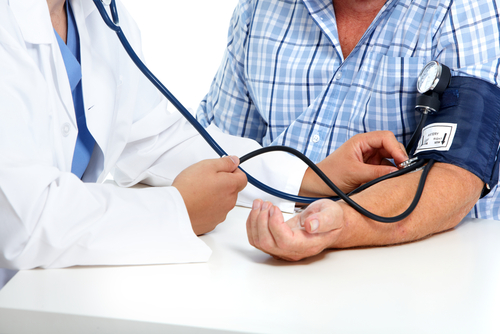High blood pressure (hypertension) is defined as high pressure (tension) in the arteries, which are the vessels that carry blood from the heart to the rest of the body.
Blood pressure readings are given as two numbers. The systolic blood pressure (the top number) equals the pressure in the arteries as the heart contracts. The diastolic pressure (the bottom number) is the pressure in the arteries as the heart relaxes. Normal blood pressure is below 120/80; blood pressure between 120/80 and 139/89 is called “pre-hypertension,” and a blood pressure of 140/90 or above is considered high while a systolic blood pressure of about 90 to 100 is considered low blood pressure.
Complications of high blood pressure include heart disease, kidney (renal) disease, hardening of the arteries (atherosclerosis or arteriosclerosis), eye damage, and stroke (brain damage).
Causes
The causes of hypertension are multifactorial, meaning there are several factors whose combined effects produce hypertension:
- High salt intake or salt sensitivity: This occurs in certain populations such as the elderly, people who are obese, or people with kidney (renal) problems.
- Genetic predisposition to high blood pressure: People who have one or two parents with hypertension have high blood pressure incidence about twice as high as the general population.
- A particular abnormality of the arteries, which results in an increased resistance (stiffness or lack of elasticity) in the tiny arteries (arterioles): This increased peripheral arteriolar stiffness develops in individuals who are also obese, do not exercise, have high salt intake, and are older.


